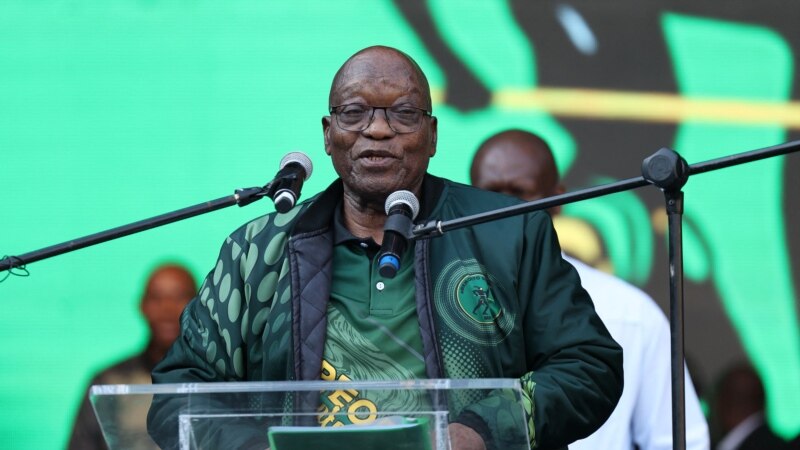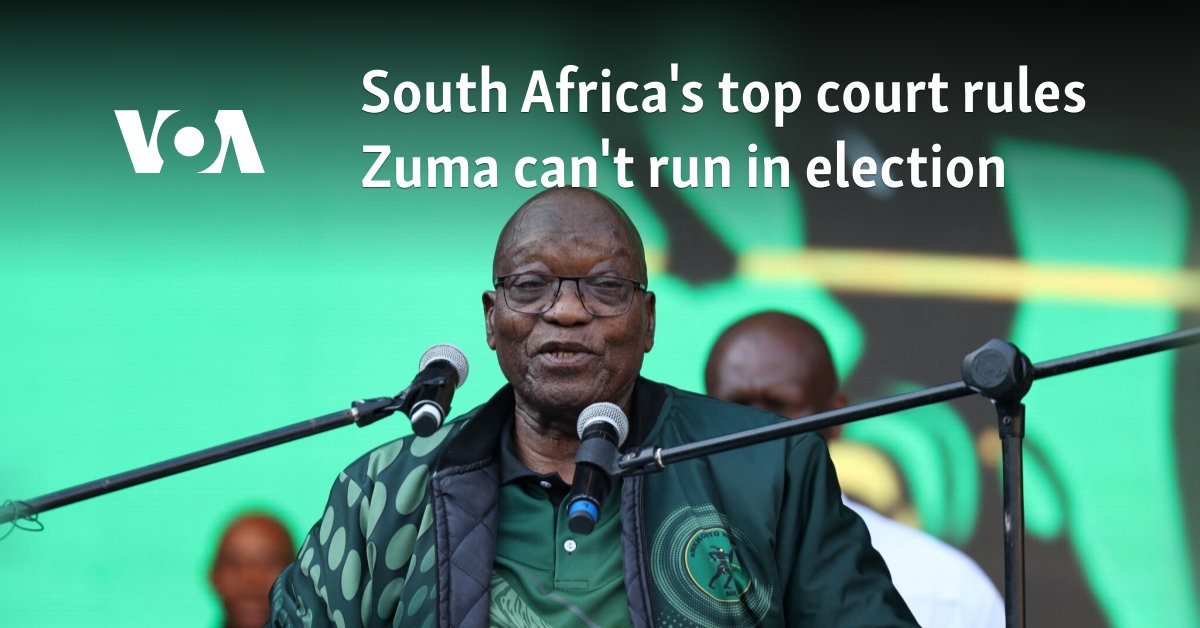This website uses cookies so that we can provide you with the best user experience possible. Cookie information is stored in your browser and performs functions such as recognising you when you return to our website and helping our team to understand which sections of the website you find most interesting and useful.


South Africa's top court says graft-tainted former president Jacob Zuma is not eligible to run for parliament in the country's May 29 general election.
Zuma left office in 2018, dogged by corruption allegations, and was briefly jailed for contempt. He has since founded a party to challenge his successor Cyril Ramaphosa's African National Congress (ANC).
The ANC has won every South African election since the country became a democracy in 1994, and Zuma served as the party's fourth president between 2009 and 2018.
But his era has become synonymous with the corruption allegations haunting the former anti-apartheid movement, and electoral authorities argued that Zuma's 2021 conviction barred him from the ballot.
Zuma and his new party, named uMkhonto Wesizwe (MK) after the ANC's former armed wing, challenged that ruling which has now been upheld by the constitutional court.
After a South African general election, the president is chosen by MPs from among their own ranks, so if Zuma is not on the ballot he could not become president.
Tight race
Under section 47 of the South African constitution, anyone convicted of an offense and sentenced to a year or more cannot stand for office until five years after the end of their jail term.
Monday's ruling could have deep and destabilizing political consequences.
Ramaphosa's ANC is still all but certain to remain South Africa's largest party after the May 29 vote, but some polls indicate that it may struggle for the first time to win an absolute majority.
Zuma's MK does not poll well nationwide but in his native KwaZulu-Natal province and among Zulus he retains support — more than 30,000 supporters cheered him at a Soweto stadium rally Saturday.
If Zuma’s party cuts into the ANC's traditional support base, Ramaphosa may be forced to negotiate a coalition with one or more of the country's many small opposition parties to ensure he is re-elected to the presidency.
Strike Zuma from the ballot may also trigger a deadly wave of unrest. Rioting after his 2021 imprisonment left more than 350 people dead.
Soaring unemployment
South Africa's respected Independent Electoral Commission says ballot papers have already been printed with Zuma's image on them, but he will be unable to sit as an MP.
The ANC was the leading political force in the struggle of black South Africans against the former apartheid regime, and has led the country for 30 years.
But late liberation leader Nelson Mandela's party has struggled in the polls in the run up to this year's vote, dogged by corruption allegations and soaring crime and unemployment rates.
Just under a third of the working-age population is unemployed and the murder rate has reached 84 a day.
But Ramaphosa's party still has a formidable nationwide electoral machine and has overseen the creation of a broad social welfare system. Many older South Africans remain loyal to its historic role.



 Africana55 Radio
Africana55 Radio 
